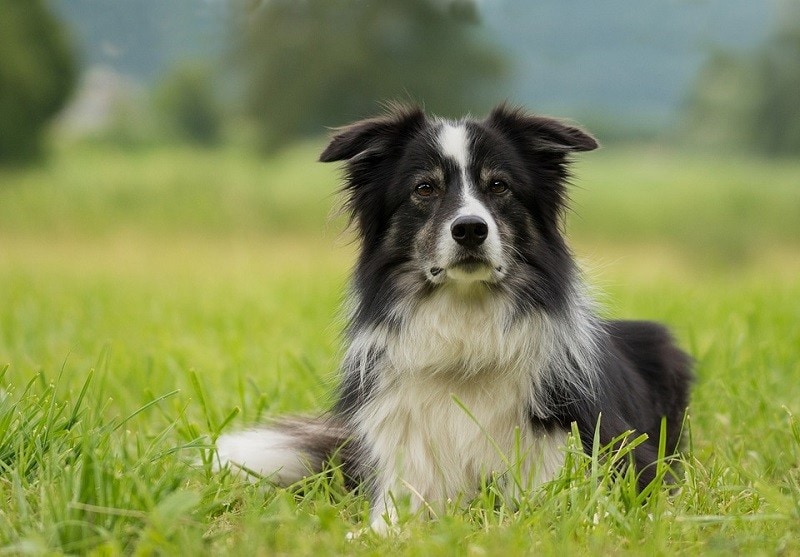22 Dog Idioms and Sayings for Every Occasion (And Their Origins)

Updated on

There’s no stronger bond than the one between a man and his dog. Loyal, affectionate, and ready to jump through hoops to please their owners, humans have domesticated dogs for thousands of years. So, it shouldn’t be a surprise why there are so many dog idioms in today’s conversations. Without a doubt, “man’s best friend” is the most popular expression.
It was first used by Frederick the Great1, a Prussian king. However, it’s not the only dog-related idiom—far from that! We’ve been living side-by-side with pups for so long that we use more than a few colloquialisms daily. So, join us, and let’s take a quick look at common dog sayings and their origins. Here goes!
The 22 Dog Idioms and Sayings
1. Barking Up the Wrong Tree
This well-known idiom is used when someone’s accusing the wrong person or is being misguided into believing a false idea. If you’re told that you’re barking up the wrong tree, it might be wise to reconsider your actions or look at them from a different angle. This saying’s roots go back to the 19th century United States of America.
To catch a night animal, hunters’ dogs used to keep watch near trees and bark whenever the prey showed up. However, since dogs can’t see much when it’s dark, they are often mistaken. So, a dog that was quite literally barking up the wrong tree was giving the animal (a raccoon, mostly) a chance to escape.
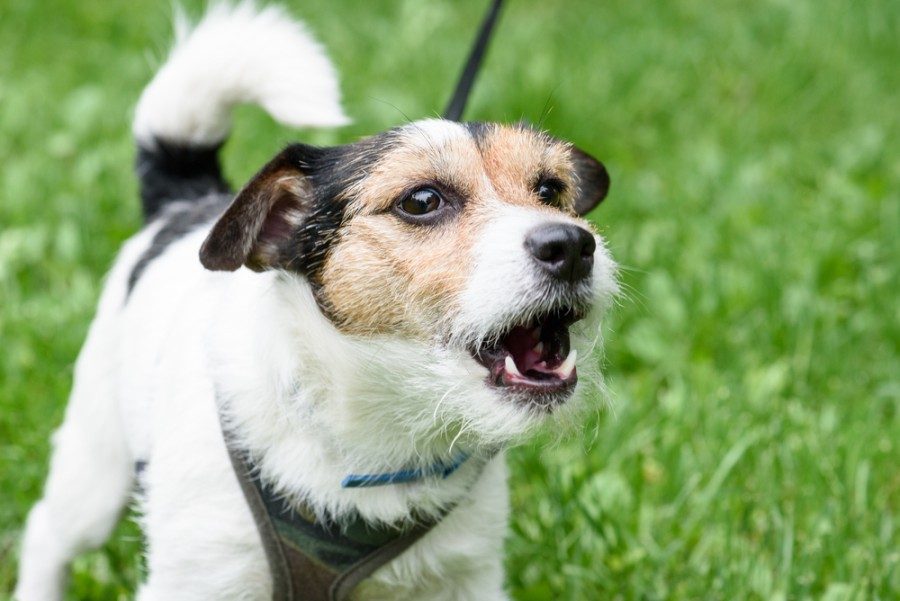
2. Call Off the Dogs
This next phrase is often heard in detective/action movies when the hero is telling the villain to leave them alone. It can be a police investigation, a hit piece by a journalist, or something else. Calling off the dogs is also commonly used as an urge to stop judging or acting aggressively toward someone. In hunting, when you call off the dogs, you’re letting the animal (or human) go.
3. Can’t Teach an Old Dog New Tricks
Learning something new isn’t always easy, especially if you’re getting a bit old. But the idiom is used in a slightly different manner. It describes a person that’s too stubborn, afraid, or lazy to try and do things differently. This phrase has been with us for almost 500 years! It’s mentioned in a 1534 book by Mr. John Fitzherbert called “The Book of Husbandry”.
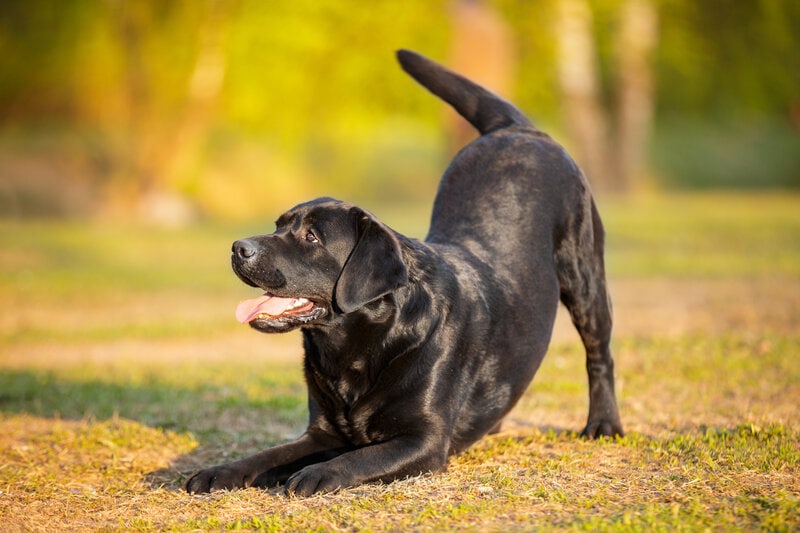
4. It’s A Dog and Pony Show
Back in the day, outdoor shows were incredibly popular in the US. Circuses used to tour the entire country (especially the rural areas) and often included performances by horses and dogs. These shows were a bit over-the-top to grab the audience’s attention. Today, this idiom perfectly fits fancy ads. Marketing agencies use flashy videos, graphics, and presentations to promote new products and services.
5. It’s Raining Cats and Dogs
Henry Vaughan, a British poet, set the foundation for this idiom in 16512. But it was Jonathan Swift who wrote “it’s raining cats and dogs” in his poem “A Description of a City Shower”. The poem saw the light of day in 1710, and in it, Swift criticized the artificial lives of people living in London. So, what does this expression mean, exactly?
Some folks use it when talking about heavy rain. The dogs are the wind, while the cats are the rain. Others refer to Norse mythology and centuries-old superstitions. And in Greek, cata doxa means “contrary to popular belief”. Yes, it’s quite a complex idiom!
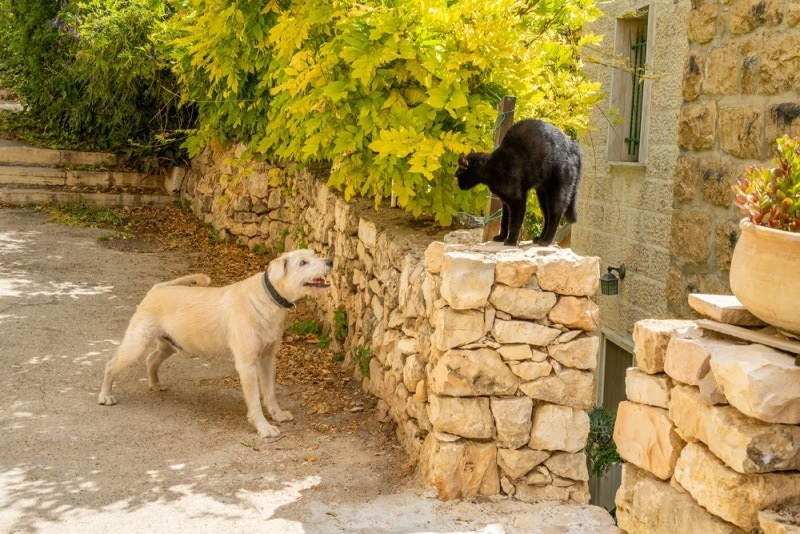
6. The Underdog
When a team or an athlete is expected to lose in a competition, they are the underdogs. We’re talking about boxing, tennis, football, and other sports. This word is also used to describe a person that overcomes a challenge despite all odds. In dogfighting, the term “underdog” was first introduced in the late 1880s when talking about a hound that lost a brawl.
7. Dog-Eat-Dog
The world is a harsh place, and you have to fight to earn your spot—that’s what this idiom represents. You’ll often hear people involved in finances, marketing, and commerce use it. Sometimes, dog-eat-dog has a more severe, violent meaning, like fellow humans being ready to cause each other pain to get to the top. This expression was first mentioned in 17943.
And approximately 100 years later, people were using it to describe the rivaling nature of the world. However, it’s actually an “edited” version of a different idiom, “dog does not eat dog” that comes from a Latin proverb. It goes like canis caninam non est and means bad folks see eye to eye/don’t fight each other.

8. Fight Like Cats and Dogs
We’ve all been there: arguing with someone we love or hate for hours and never coming to an agreement. That’s what this idiom stands for. In nature, dogs and cats do, indeed, fight all the time, although canines are usually much stronger and have the upper hand. But do you know where this phrase takes its roots from? In 1611, there was a play at the Globe Theater called “King Cunobelinus”—that’s when it all started.
9. Puppy Love/Eyes
While this idiom might sound a bit childish, when you truly love a person, you will instantly see the appeal. You have puppy love when your emotions are pure. As for the puppy eyes, it’s when we make a cute face and ask for something. Pets and children implement this “killer technique” quite often; grown-ups do it, too, but on a smaller scale.
These phrases are found in many different stories, but it’s believed that “puppy love” was first mentioned in 1823.

10. Never Bite the Hand That Feeds You
There are lots of people out there that turn on you instead of being thankful for your kindness. That’s why this phrase is so popular. And it doesn’t necessarily refer to dogs (because a well-trained pup will never hurt his owner) but rather to humans that see kindness as weakness and criticize/betray instead.
It was Edmund Burke, an Anglo–Irish philosopher and politician, that used this idiom first (in printed form). It’s derived from the fact that many horses tend to bite your hand while you’re feeding them. This is a counterproductive move for the horse, but it doesn’t stop it from doing that.
11. A Dog With Two Tails
Have you ever been told that you’re acting like a dog with two tails? Relax: what they meant to say is that you’re a joyful person. It’s no secret that dogs like to wag their tails when they’re happy. This phrase dates to the early 19th century when John Mactaggart, an engineer from Scotland, helped Canadians build a bridge between two provinces.
When he went back to his hometown, the man wrote a book about his time in Canada and used this phrase.

12. The Tail That Wags the Dog
Sometimes, gigantic industries are controlled by a smaller subsidiary. That’s a great example of a tail wagging the dog. Sometimes, this phrase is used when the roles are reversed, like the financial sector taking control over the country or football clubs dictating their conditions to sports channels.
A theatrical play, “Our American Cousin”, included it first in 1858. Almost 150 years later (in 1997, to be exact), “Wag the Dog”, an American political satire/comedy, flipped the phrase and defined it as a meaningless action (performed by the army) to distract the nation from a scandal back home.
13. Better the Head of a Dog Than the Tail of a Lion
We promise that this is the last idiom that involves dogs and tails! So, what does it represent? You’d probably want to be a leader of a small group of people rather than an outsider in a much bigger one, right? That’s exactly what this expression refers to.
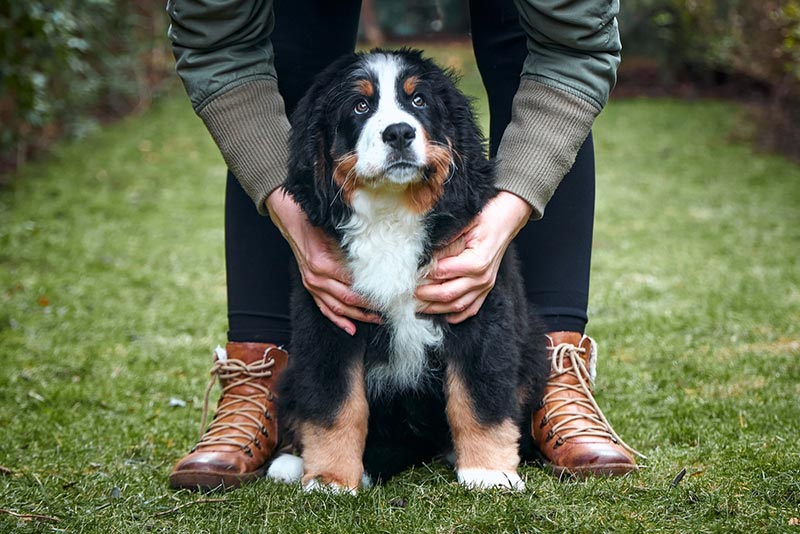
14. A Barking Dog Seldom Bites
This popular idiom dates back to 16th-century England. However, long before the British, Quintus Curtius, a famed historian from the Roman Empire, expressed this same idea in his writings. There’s another popular phrase/proverb that puts these two dog-related words together, and it goes like “one’s bark is worse than the bite”. When someone looks or acts more hostile than they truly are, you can use this idiom.
15. As Sick As a Dog
Are you sick with a cold/flu right now? Well, you could say that you’re as sick as a dog. In the early 1700s, it was common for people to tie bad things to dogs, but not because they hated these lovely animals. Dogs used to carry various diseases like the plague, so that’s where this expression is coming from. The idea is the same as with another idiom, “it’s a dog’s life” (it’s when someone’s going through a rough patch).

16. Being in the Dog House
What do most dog parents do when their pet messes up? They send him to his kennel to teach him a lesson. So, when you’re in trouble or out of someone’s good graces, metaphorically, you’re in the dog house. It could be a husband who forgot an important date, a student who failed an exam, or a kid who did something bad and is now being punished.
17. The Big Dogs
Any group of people, organization, sports team, or performer on top of their game is a big/top dog. And if you run with the big dogs, that means you’re capable of keeping up with the best of the best, be it chart-topping musicians, award-winning actors, or MVPs. These days, a big dog is often the head of a company or a market-leading IT firm, a shot caller. First known use dates to 1833.
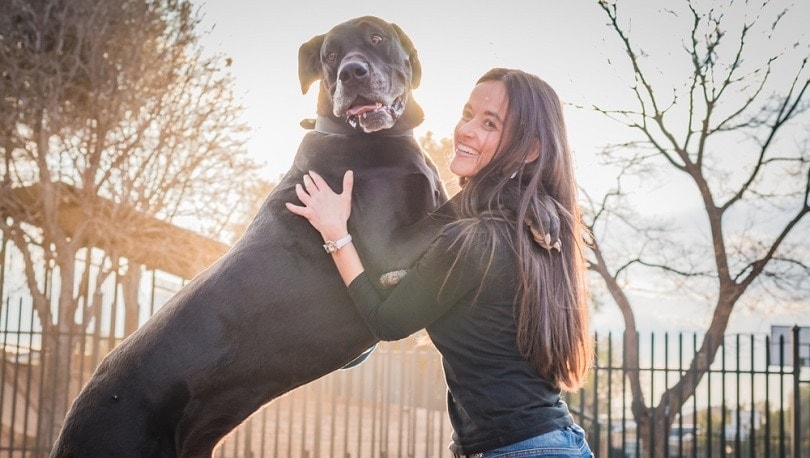
18. Every Dog Has Its Day
Even if you’re not the strongest or richest person right now, you can still have success at a certain point in your life. This is what this idiom means. In the early 16th century, Queen Elizabeth used this phrase in a letter: that was the first time it was written in English. The letter was published in 1550. However, the expression has been around for thousands of years and takes its roots from a Macedonian proverb.
In that proverb, Euripides, an Egyptian tragedian, was killed by his enemy’s dog in 406 B.C.
19. The Dog Days
When it’s really hot outside, and you’re trying to escape the heat, you’re living through the dog days. Often, this expression is used when people talk about how hard it is to get work done when the sun is always up. In Rome and Ancient Greece, dog days started when Sirius, the God of the Dog Star (the brightest one in Canis Major), appeared in the sky with the sun.
Our ancestors believed that together, these stars were responsible for the heat and could cause a fever or something much worse. In the US (and other English-speaking countries), the Dog Days officially start on Monday, July 3, and end on Friday, August 11, stretching for 40 days.
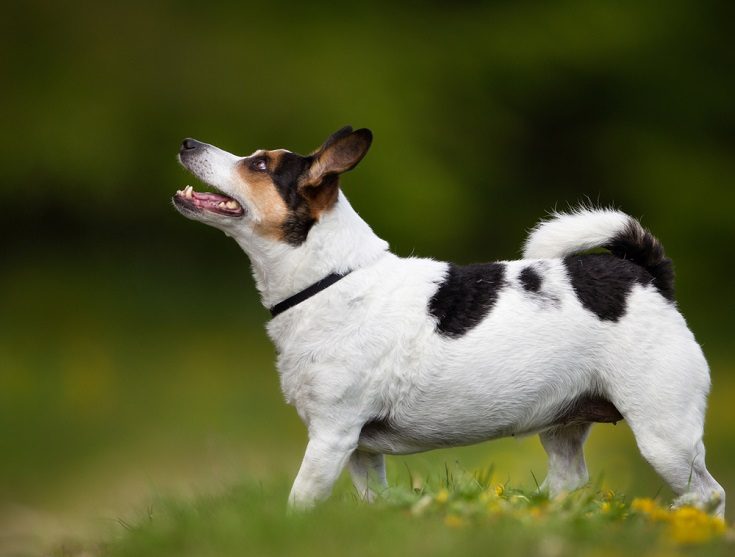
20. Dog Fight
Can you use this phrase to describe two dogs in a standoff? Of course, you can! However, it often describes a heated conversation or dispute. Plus, there’s also a “secret” third meaning to this idiom, and it involves aircraft. For almost 100 years, military pilots have been calling one-on-one engagements between fighter planes dog fights.
It’s all about the maneuvers and short-range combat. And, despite the invention of long-range missiles that can take down aircraft from a distance, dog fighting is still a thing. It’s not as common, though. The first mentions date back to WWI, although it was WWII that made dog fights popular.
21. Let Sleeping Dogs Lie
Have you heard the expression “don’t wake a sleeping giant”? Yes, it’s another way of saying, “Let sleeping dogs lie”. The thing is, when you make a loud noise and wake a napping guard dog, it becomes overly aggressive and attacks you. This idiom is used to warn someone or prevent them from doing something dangerous that might lead to a disaster.

22. Dog Tired
When you’re so exhausted that it almost hurts to walk, just say you’re dog-tired. There’s a story about Alfred the Great, the King of the West Saxons, who liked to test his sons on hunting expeditions. The idea was simple: the man that managed to catch up to a higher number of the king’s hounds would get a better seat at the dinner table. These trials were tiring but highly rewarding.
 Not Quite There Yet!
Not Quite There Yet!
Alright, that’s it for the idioms with the most intriguing origins and double-layer meanings. Here’s a quick look at some more common phrases:
- A dog’s breakfast – A big mess, a catastrophe
- A shaggy dog story – When someone takes too long to tell a joke
- Mean as a junkyard dog – A dangerous, aggressive person
- To buy a pup – To pay for something that costs less than expected
- Every man and his dog – A large group of people
- See a man about a dog – Use the bathroom or buy drinks
- Like a dog with a bone – Focused, relentless, eager to win
- Go to the dogs – Decay, lose the appeal
- Sleep like a dog – Have a good night’s sleep
 Conclusion
Conclusion
We use phrases like “big dogs”, “puppy love”, and “underdog” quite often yet rarely think about the origins and the true meaning behind these expressions. And then there are idioms like “it’s raining cats and dogs” that are almost impossible to make sense of unless you know the full story. Now, dogs have been accompanying humans for thousands of years.
And many idioms go back to Ancient Greece and the Roman Empire! Today, we covered the most widely known and used dog-related phrases and tracked down their “roots” to get a better understanding of where they’re coming from. So, the next time you’re having a conversation with a friend, use this post as your source of hard-hitting idioms for every occasion!
- Related Read: Where Did the Term Raining Cats and Dogs Come From?
Featured Image Credit: Rabizo Anatolii, Shutterstock

 Not Quite There Yet!
Not Quite There Yet!
